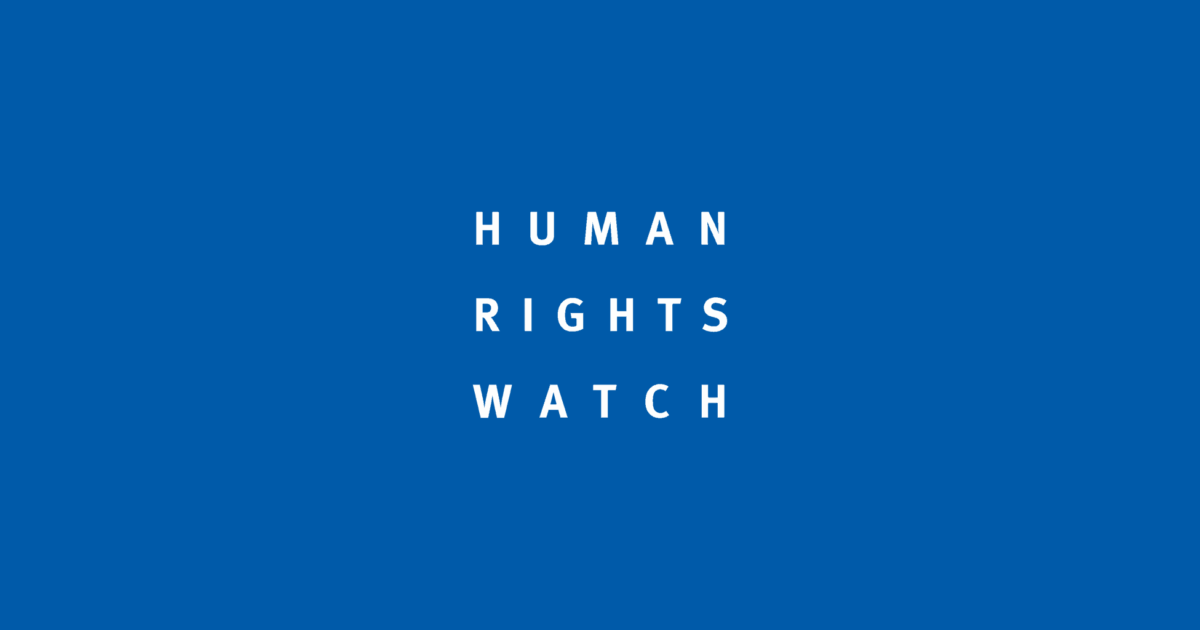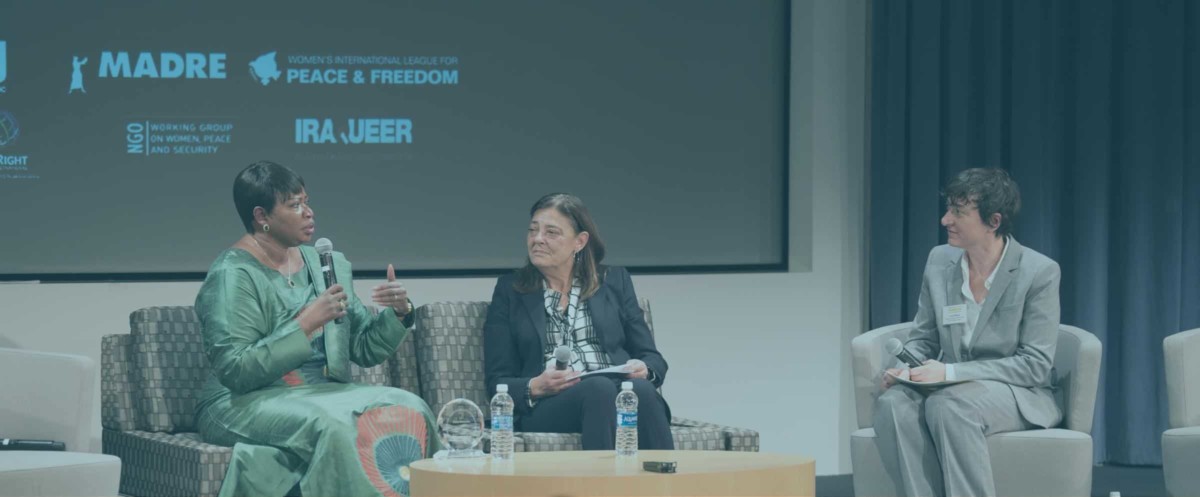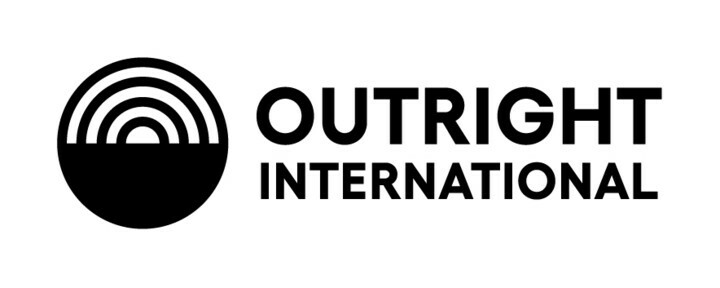Justice & Rule of Law
Conflicts are often caused by or result in the breakdown of law and order and the collapse of judicial institutions. In many cases, violent conflict replaces the rule of law with corruption and coercion, and hence significantly erodes or destroys a society’s ability to manage internal conflict and security.
In regards to RoL in conflict-affected situations, the NGOWG WPS advocates for the Security Council to adopt comprehensive strategies to investigate and prosecute crimes perpetrated against women to ensure justice, truth, and reparation for survivors, particularly in regard to the adjudication of crimes of sexual and gender-based violence. Member States are also encouraged to adopt appropriate legal frameworks to prevent discrimination against women and ensure their full and equal participation in RoL institutions as well as vet all national authorities, including the armed forces, to ensure those reasonably suspected of violence against women are not recruited. Effective victim and witness protection systems must be established. The NGOWG WPS also challenges the status quo relating to sexual exploitation and abuse, calling for the halt of the use of transfers of host countries of peacekeepers accused of perpetrating sexual and/or gender based violence. The Council should recognize the important role of the ICC in ending impunity, particularly in relation to crimes of sexual and gender-based violence.
Justice & Rule of Law
Conflicts are often caused by or result in the breakdown of law and order and the collapse of judicial institutions. In many cases, violent conflict replaces the rule of law with corruption and coercion, and hence significantly erodes or destroys a society’s ability to manage internal conflict and security.
In regards to ROL (Rule of Law) in conflict-affected situations, the NGOWG WPS advocates for the Security Council to adopt comprehensive strategies to investigate and prosecute crimes perpetrated against women to ensure justice, truth, and reparation for survivors, particularly in regard to the adjudication of crimes of sexual and gender-based violence. Member States are also encouraged to adopt appropriate legal frameworks to prevent discrimination against women and ensure their full and equal participation in ROL institutions as well as vet all national authorities, including the armed forces, to ensure those reasonably suspected of violence against women are not recruited. Effective victim and witness protection systems must be established.
The NGOWG WPS also challenges the status quo relating to sexual exploitation and abuse, calling for the halt of the use of transfers of host countries of peacekeepers accused of perpetrating sexual and/or gender based violence. The Council should recognize the important role of the ICC in ending impunity, particularly in relation to crimes of sexual and gender-based violence.
Current and Past Recommendations to the UN Security Council (Monthly Action Points)
During its discussion of the Secretary-General’s report on rule of law (RoL) in conflict-affected situations in January 2013, the Council should call for comprehensive strategies to investigate and prosecute crimes under international law to ensure justice, truth and reparation for victims. This must include crimes of sexual and gender-based violence, and universal jurisdiction
should be invoked when necessary. States should enact national legislation defining crimes under international law, including crimes of sexual and gender-based violence, and must move to re-establish the rule of law and rebuild the national justice system. Appropriate legal frameworks must be adopted to prevent discrimination against women and ensure their full and equal participation in RoL institutions. Discriminatory laws and measures must be repealed, including such that deny the legal provision of certain reproductive health services for women or criminalize medical procedures needed only by women (CEDAW General Recommendation 24). Effective victim and witness protection systems must be established. Vetting of national authorities, including the armed forces, should be carried out to suspend from their positions or not recruit those reasonably suspected of crimes under international law. The Council should recognize the important role of the ICC in ending impunity, particularly in relation to crimes of sexual and gender-based violence. The Council should call on all States to establish national action plans in full consultation with local and community women’s rights groups to implement SCR 1325.
During its discussion of the Secretary-General’s report on rule of law (RoL) in conflict-affected situations in January 2013, the Council should call for comprehensive strategies to investigate and prosecute crimes under international law to ensure justice, truth and reparation for victims. This must include crimes of sexual and gender-based violence, and universal jurisdiction
should be invoked when necessary. States should enact national legislation defining crimes under international law, including crimes of sexual and gender-based violence, and must move to re-establish the rule of law and rebuild the national justice system. Appropriate legal frameworks must be adopted to prevent discrimination against women and ensure their full and equal participation in RoL institutions. Discriminatory laws and measures must be repealed, including such that deny the legal provision of certain reproductive health services for women or criminalize medical procedures needed only by women (CEDAW General Recommendation 24). Effective victim and witness protection systems must be established. Vetting of national authorities, including the armed forces, should be carried out to suspend from their positions or not recruit those reasonably suspected of crimes under international law. The Council should recognize the important role of the ICC in ending impunity, particularly in relation to crimes of sexual and gender-based violence. The Council should call on all States to establish national action plans in full consultation with local and community women’s rights groups to implement SCR 1325.
Relevant Resources









